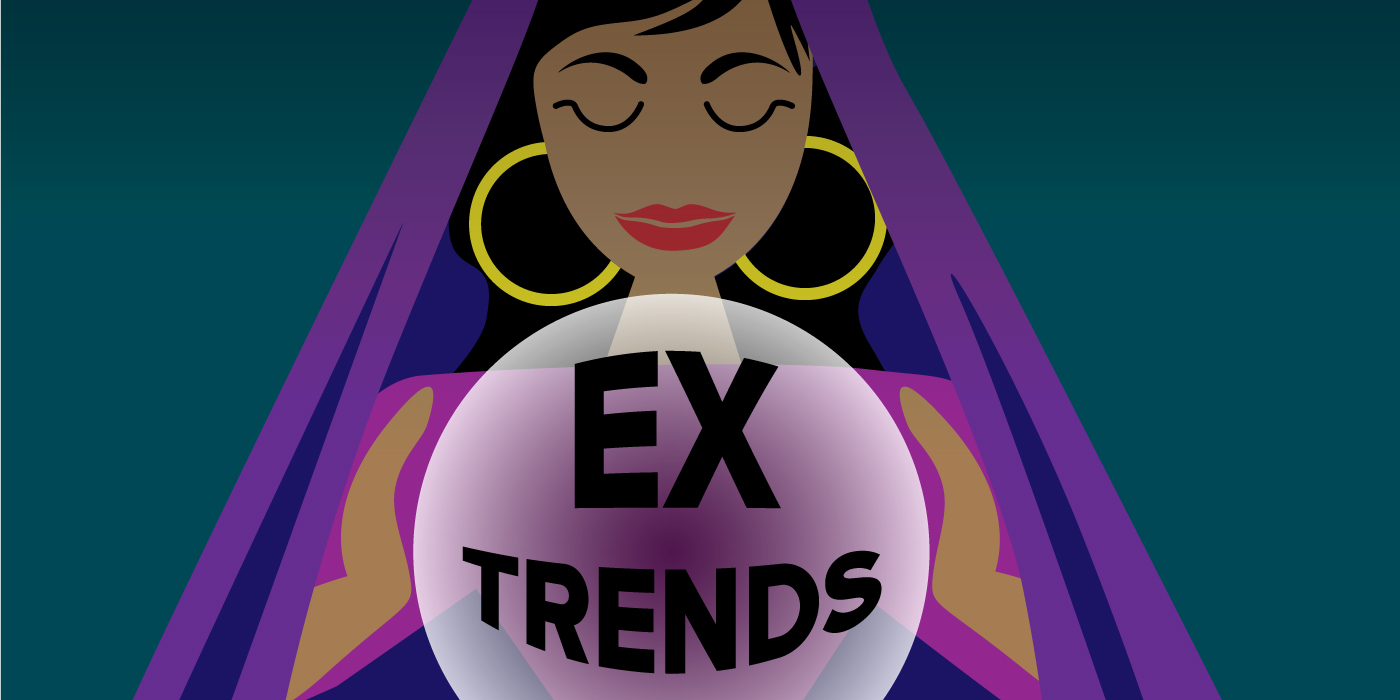Insights
Employee Experience Trends 2018. Just How On The Pulse Were We?

We didn’t predict the runaway success of Love Island in 2018. Or the long, hot, summer. But at the end of 2017 we collated what continuing, and new trends we thought would have the most impact on our clients in 2018. Fancy taking a look at how our predictions panned out?
Our four main observations for 2018
1. CX meets EX
What we predicted:
Could they…would they? At the start of 2018 we predicted CX and EX practices and strategies would increasingly converge. We also predicted that there would be four vital areas that would define customer experience management: customer experience, product experience, brand experience and employee experience.
What happened:
CX and EX: ‘What ifs’are now a reality
EX is now as front of mind as CX, with teams being set up just to focus on EX. It’s why, for the first time, we saw integrated EX/CX briefs from clients with EX and CX in their job titles. We also received EX briefs with data gathered from CX initiatives, as well as from employee engagement surveys and NET promotor scores: all helping to get IC priorities on the CEO agenda earlier.
2. Internal Comms
What we predicted:
In early 2018 we predicted that the IC mandate would shift its focus, integrating much more closely with HR, Brand and Marketing as EX became more central to business strategies. We also predicted that EVPs would play a bigger part in organizational employee strategy, and that IC would be a critical part of any successful EVP roll out.
What happened:
An organisation-wide embrace
We’ve seen shifts in team structures as businesses look for more integration with IC as part of an overall business strategy. EVPs have been a huge area of interest to organisations in 2018, as more purpose-driven organisations look to refine their recruitment needs. We helped HR and IC in several organisations activate EVPs both internally and externally: helping lay the foundations of how they frame themselves to their present, and future, employees. We’ve seen IC teams become critical in ensuring an EVP stays relevant across all aspects of an organisation. We’ve noted, too, that IC is being seen as a business enabler…a go-to trusted advisor across organisations.
3. Digital Transformation
What we predicted:
It seems a no-brainer: predicting that new digital technologies and transformation would mean change to the workplace. But we also predicted that digital transformation would need a strong culture to withstand these changes – with employees being ready to adapt to the new workplace technologies. Analytics would also be a key part of this process – giving much-needed insight to support company-wide collaboration.
What happened:
Don’t forget the people!
We saw a rise in the number of client requests to carry out discovery exercises to gather and use audience insights, to help plan change communication journeys right from the start of strategic IT planning. We’ve seen how important these comms are, as a whopping 70% of new workplace technology strategy failure is down to people not embracing or feeling comfortable with new digital infrastructure, not the infrastructure itself.
4. The rise of the robots
What we predicted:
At the start of 2018 we couldn’t ignore stories from experts predicting that robots and AI could affect almost one third of UK jobs by 2030. Pretty scary, or exciting stuff? Depending on whether you’re an efficiency-driven employer or a more cautious employee, we predicted people’s views would differ. But with AI cropping up everywhere from manufacturing to marketing, and being used to connect with customers, we predicted 2018 would be when companies demystified AI to their employees.
What happened:
Hello, friendly new colleagues!
We couldn’t agree more with our clients when they say that AI doesn’t mean losing roles – it’s a great opportunity to up-skill teams through learning and development. Companies are seeing that communicating their technology-related strategies early helps employees feel included and be more certain about their own futures. We’re happy to say the robots haven’t taken over yet!